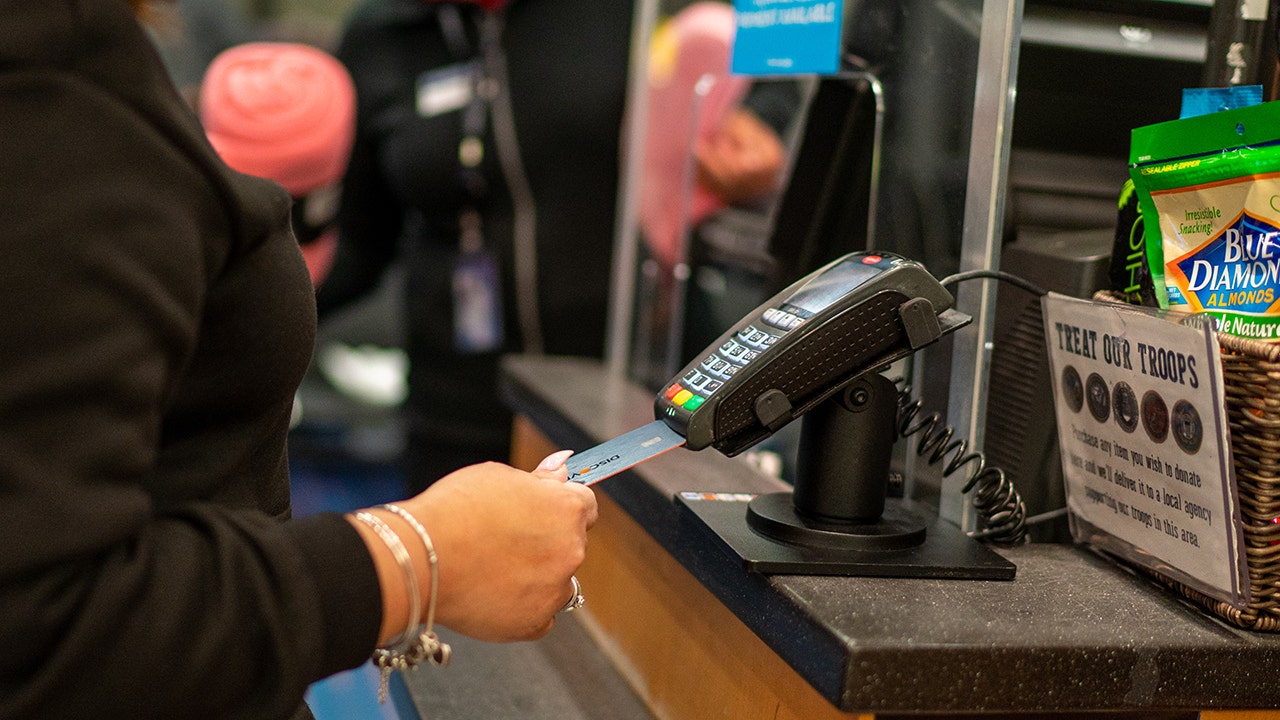President Donald Trump said Monday that he plans to use tariff revenue to issue $2,000 payments to low- and middle-income Americans, with any remaining funds directed toward paying down the nation’s massive debt.
Over the weekend, Trump called those who oppose tariffs “fools” and defended his proposal, saying revenue from the duties would deliver direct payments to Americans.
“All money left over from the $2000 payments made to low and middle income USA Citizens, from the massive Tariff Income pouring into our Country from foreign countries, which will be substantial, will be used to SUBSTANTIALLY PAY DOWN NATIONAL DEBT,” Trump wrote in a Truth Social post.
TRUMP CALLS TARIFF OPPONENTS ‘FOOLS,’ PROMISES $2K DIVIDEND PAYMENTS FOR AMERICANS
With the nation’s debt hovering just north of $38 trillion, it’s unclear how tariff revenue could really chip away at it.
Tariffs typically raise billions, not trillions, in revenue, a fraction of what would be needed to meaningfully shrink the national debt.
Since Trump announced his “Liberation Day” tariffs in April, tariff revenues have climbed sharply from $23.9 billion in May to $28 billion in June and $29 billion in July. Total duty revenue reached $215.2 billion in fiscal year 2025, which ended Sept. 30, according to the Treasury Department’s Customs and Certain Excise Taxes report.
TRUMP DEFENDS TARIFFS, SAYS US HAS BEEN ‘THE KING OF BEING SCREWED’ BY TRADE IMBALANCE
So far in fiscal year 2026, which began on Oct. 1, the U.S. has collected $35.9 billion, according to the latest numbers published by the Treasury Department.
And while customs duties under Trump have soared, they remain a small slice of overall federal revenue. Individual income taxes are by far the government’s largest source of income, generating more than $2.6 trillion in fiscal 2025, compared with about $195 billion from tariffs.
TRUMP SAYS SUPREME COURT CASE ON TRADE IS ‘LIFE OR DEATH’ FOR THE US
Corporate income taxes brought in roughly $452 billion, according to Treasury data.
The latest revelation comes as Trump’s trade policies face renewed legal scrutiny, with the Supreme Court last week hearing arguments over whether he had authority under the International Emergency Economic Powers Act to impose tariffs and whether those actions violated the Constitution’s separation of powers.
CLICK HERE TO GET FOX BUSINESS ON THE GO
A federal appeals court ruled on Aug. 29 that Trump overstepped his authority by using emergency powers to impose new tariffs on imported goods. The court said that authority rests with Congress or within existing trade policy frameworks.
The nation’s highest court is still in the process of deciding the fate of Trump’s trade agenda and the tariffs in question.
Read the full article here











